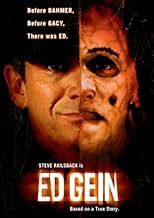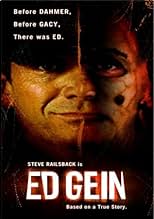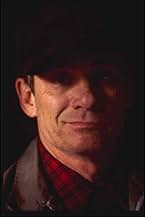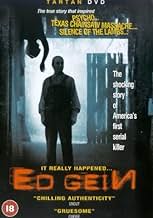How well I remember the radio broadcast on the day Gein's house of horrors was found. Because of public sensibilities, the grisly depredations could only be hinted at, which of course left the rest to over-ripe imaginations like mine. It was like the shell of Ozzie & Harriet America had suddenly been ripped, exposing something maybe beyond imagination. In terms of serial killers, Gein is far from the worst, only two confirmed murders though there could have been more. In terms of sheer dementia, however, it would be hard to surpass the fiendish Wisconsin farmer and grave robber. No wonder writer Bloch took an immediate interest, soon followed by moviemaker Hitchcock and his dark masterpiece.
The movie, I think, captures much of the banality of Gein's evil. On the outside he's a rather dull, disheveled sort, blending into the seedy rural background of run-down shops, clapboard houses, and shiny deer rifles. Actor Railsback low-keys it the whole way, only a smirk suggesting something happening on the inside. Clearly, the inner Gein only comes to life when wearing a woman's skin, literally. The problem, of course, is mother. The movie blends in her visual presence (Snodgress) at those times when the demented Gein gets an angry lecture. Seems Mom is some kind of religious nut in which loose women, the road to hell, and backward son combine into one venemous package. For Ed, there's no escape. She haunts him, and us, at every turn. The effect is both unsettling and revealing, showing that Gein's really only half-present at any one time, except maybe when he's frolicking as a woman.
Thankfully, the movie refuses to prettify anything. It also looks like actual b&w footage from Nov., 1957, appears now and again, lending some authenticity to the weirdness. Anyway, I suspect this film comes about as close to Gein's actual pathology as any of the many others. And what the narrative may lack in melodrama, it makes up for in morbid fascination.

































